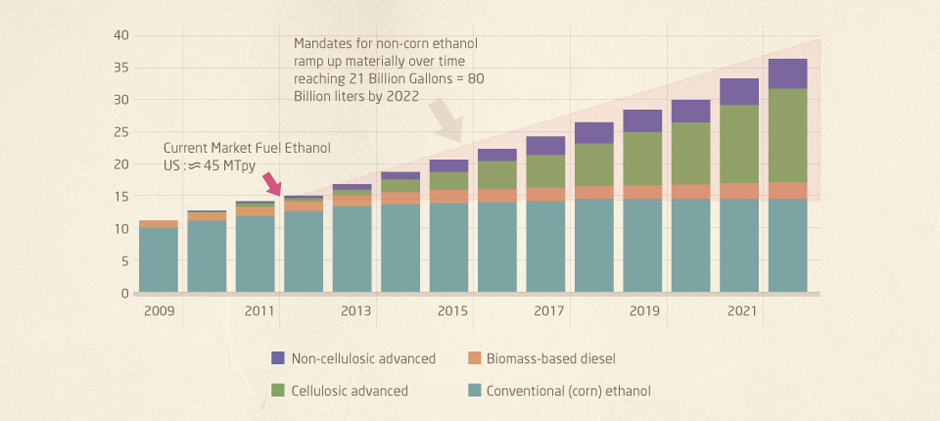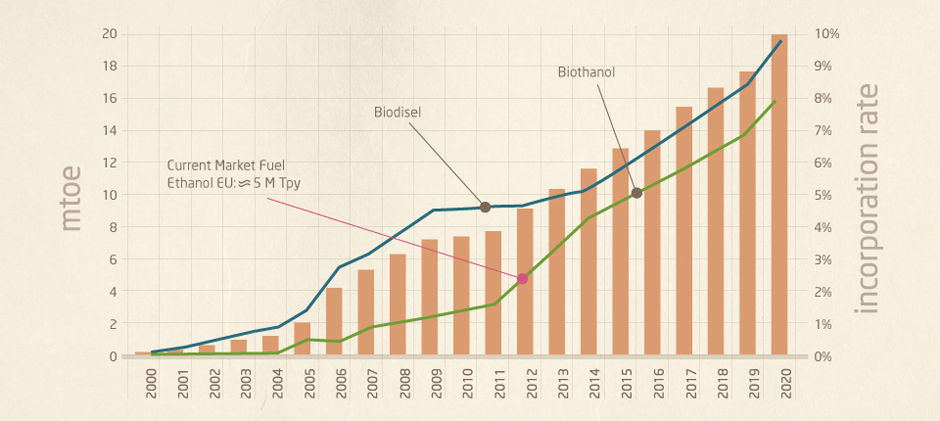


However, an extensive use of these raw materials for the production of biofuels is likely to take away land from food crops and, therefore, to cause a price increase on the food market. Moreover, the first-generation processes from cereals offer a limited reduction of greenhouse gas emissions in the fuel lifecycle when compared to fossil fuels, as the CO2 "absorbed" by the plant is nullified by the greenhouse gas emissions related to the production of biomass (fertilizers, ground operations) and the energy consumed in the conversion process.
On the basis of the above considerations, the European Union resolved that starting from 2017 fuels with CO2 sequestration capacity of less than 50% will no longer contribute to meet the 10% e/e target set by the Renewable Energy Directive and the threshold will rise to 60% in 2018 for biofuels and bioliquids produced in installations in which production started on or after 1 January 2017.
The ethanol produced from lignocellulosic raw material, such as straw, has the potential to overcome these thresholds.
To view the national mandates please refer to the link below:
http://globalrfa.org/biofuels-map
